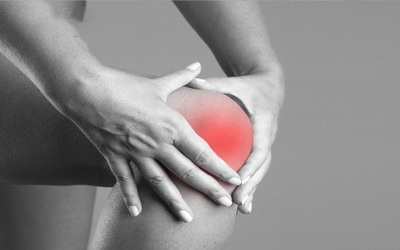Most of the people suffer from knee pain, at some point in life, irrespective of their profession.
[the_ad id=”6287″]
Nearly 50% of the population may develop osteoarthritis by the age of 85 years. Everyday stress on the knee joint causes regular wear and tear damaging the healthy joint. All these together cause knee pain which can be frustrating for the sufferers; simple movements such as crossing your legs also seem to be an excruciating task.
Knee pain can be restricted to a specific area, or it can spread throughout the knee. It often leads to physical restriction.
Symptoms of knee pain
The intensity of knee pain can range from mild to severe based on the cause. If your knee pain is due to infection or inflammation, then you will have redness and swollen knee joint along with pain. If the pain is due to a fracture, then your symptoms are restricted to a particular location.
You may face difficulty in walking due to the unstable knees. You may have a limp due to discomfort in your knees. Ligament damage can make it difficult to climb up and down the stairs. Flexion or extension of the knee becomes very painful due to the stiffness of the joint.
Causes of knee pain
You may have a knee joint pain if you have had an injury or fracture of your knee joint due to fall or mechanical collision. Injuries are common in people who play sports. Dislocation of the knee joints can occur due to motor-vehicle accidents and needs immediate medical attention.
Medical conditions such as arthritis and gout also cause knee pain – Arthritis occurs due to the degeneration of bone and other supportive tissue at the joint. It occurs mainly in the elderly, and in those who are obese. Gout is a type of arthritis which occurs due to the accumulation of uric acid crystals in the knee joint. Sometimes, your knee joint can get infected leading to pain, redness, and swelling. This is called as septic arthritis.
Treatment
You may not always be serious about your knee pain unless it is due to injuries or due to medical conditions such as arthritis. If not treated on time, it can lead to an increasing pain and joint damage, making you more prone to future injuries. There are several therapies to combat the knee pain. However, very few of them provide instant relief. Here are a few such remedies:
The RICE treatment – Rest, Ice, Compression, Elevation
All you need to do is to rest your feet. Do not perform vigorous exercises or activities at least for a week.
Apply an ice bag or a cold compress to the knee for 20 minutes every time you do. To avoid freezing of the joint, wrap the ice pack in a towel. Following this, wrap the knee with a compression bandage taking care not to block the circulation to the knee. Compression reduces swelling of the joint. While resting, keep the foot elevated on the first day alone. Elevation helps to control swelling of the joint.
The cold compress may be alternated with a hot compress for the management of chronic pain.
Cayenne pepper
Mix a tablespoon of cayenne pepper to olive oil or jojoba oil in a double boiler, heat this and apply it to the knee while hot. It gives instant relief and can be applied twice daily for better results. Capsaicin, a natural pain reliever of the pepper provides a warmth sensation for relieving pain immediately when applied.
Exercises and stretches
Flex your knee joint and place a wrapped towel in between and as high as you can. Now settle down on a chair and give the joint a little squeeze. Contract and relax while you do this. This 2-minute stretch can give you quick relief from the pain.
You may keep a pillow between your knees and squeeze it for 5 seconds. Repeat this for ten times and the results are quite evident.
Home remedies
If your pain is mild to moderate, which is common with a sprain, minor injury, inflammation, etc. then you can go for treatment with home remedies for immediate relief. But before trying the home remedies, you should talk to your doctor.
Ginger tea is highly effective in alleviating the knee pain and the associated swelling. Lemon juice is also found to be beneficial in treating knee pain due to gout. The citric acid dissolves the uric acid crystals alleviating the pain.
Medications
Topical pain relievers – There are a number of pain-reliever creams and ointments available over-the-counter (OTC) to relieve your knee pain within a few minutes of their application. Choose the topical pain relievers containing menthol, salicylates or capsaicin or a combination of these ingredients.
Oral pain relievers – Acetaminophen is the first OTC drug of choice for getting immediate relief from knee pain. The other medications are ibuprofen, naproxen, and few NSAIDs, however, the medications should be taken after consulting the doctor.
Injectibles – Corticosteroid injections can help to relieve severe knee pain.
The cover treatment – An injection of fine needle probes frozen to -126OC with nitric oxide canisters can provide the desired result within 15-20 minutes. This therapy targets and freezes the sensory nerves supplying the knee to provide instant relief. It is very safe and easy, without any discomfort, but the relief is temporary, and the knee pain, can reverse in 6 months.
In extreme cases of the knee pain, surgery may be required.
The limited range of motion of the knee joint can impact your performance which can worsen from day to day. So don’t allow the knee pain control your life! You can find the right path for recovery the sooner you realize the root cause of the problem. Medical attention may be required if the severity is high.
Source:

